
Filmmakers love little more than a revenge story. Whether it be classics like 1974's Death Wish or more contemporary blockbusters like Dev Patel's new directorial debut, Monkey Man, the ancient and deeply human desire for revenge has been at the center of countless movies over the past 100 years. That doesn't mean some films haven't treaded that particular thematic and narrative terrain better than others, though.
On the contrary, as the revenge thriller genre has grown in popularity throughout the years, a number of fan-favorite and iconic movies have earned different places for themselves in cinema history. With all that in mind, and in honor of Monkey Man's recent release, here are Inverse's picks for the 10 best revenge films of all time.
Man on Fire (2004)
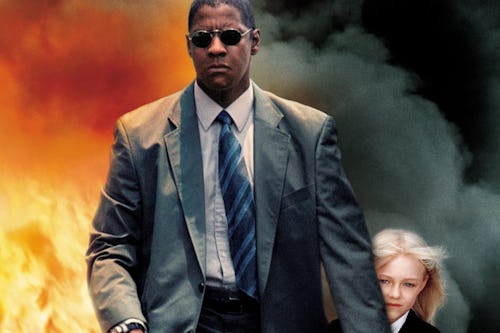
Tony Scott's Man on Fire is a brutal revenge thriller unlike any other. Denzel Washington leads the film as a suicidal, former paramilitary officer who finds something new to hold onto in his friendship with the young girl (played by Dakota Fanning) he's charged with protecting. When members of a notorious kidnapping ring abduct her, Washington's John Creasy sets out to bring her kidnappers to justice. What follows is a series of confrontations and torture sessions that see both Washington and Scott go to some of the darkest and most compelling places of their careers.
Visually, the film is a heightened, expressionistic portrait of violence — one brimming with jarring cuts, oversaturated colors, and editing rhythms that are as disorienting as they are hypnotic. At the center of all of its visual and narrative chaos is Washington, who plays John Creasy simultaneously as a man in deep pain and as an unstoppable agent of divine wrath. Few movies touch into the seemingly unholy power of revenge, both as an emotion and act, as well as Man on Fire does.
Lady Vengeance (2005)
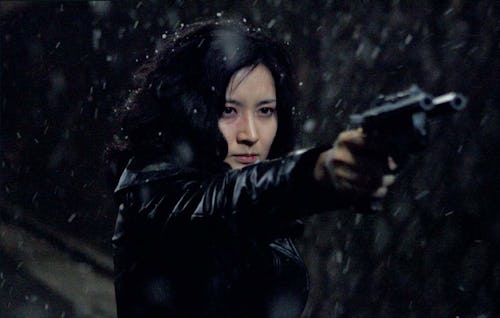
Lady Vengeance, the third installment in Park Chan-wook's Vengeance Trilogy, is a startlingly visceral thriller. Anchored by an unforgettable, raw lead performance by Lee Young-ae, the film follows a former female convict who sets out in the wake of her prison release to hunt down the man who ruined her life. Along the way, she forms unexpected new friendships, repairs her relationship with her estranged daughter, and realizes that her target's fate doesn't have to be entirely up to her.
The film is perhaps best known for its subversive third act, which brings Lady Vengeance's surreal yet clear-eyed twist on its seemingly familiar story to a fittingly strange and sobering conclusion. From the moment it begins to the moment it ends, though, Lady Vengeance casts the same, strangely hypnotic spell that so many of Park Chan-wook's movies do. It manages to leave you, much like revenge itself, both satisfied and hollowed out, and its ability to evoke those two emotions at once is why Lady Vengeance is on this list.
I Saw the Devil (2010)
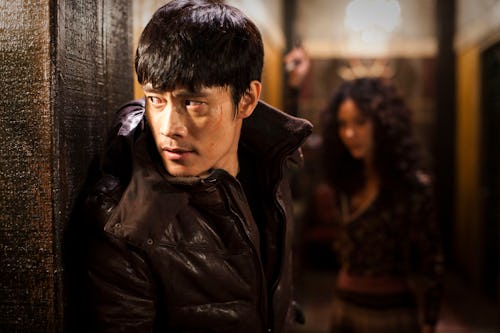
As its title suggests, I Saw the Devil isn't for the faint of heart. The film, a cold-blooded revenge thriller from A Tale of Two Sisters director Kim Jee-woon, follows a South Korean special agent (Lee Byung-hun) who makes it his mission to avenge the murder of his wife at the hands of a sadistic serial killer (Choi Min-sik). Once Lee's protagonist gets his hands on Choi's criminal, I Saw the Devil reveals itself for what it truly is — a stomach-churning action film of shocking brutality that doubles as a meditation on the circular, self-destructive nature of revenge. Few movies bring as cold and nihilistic a perspective to the revenge genre as I Saw the Devil does, and even fewer do it well. It's a must-see film for any fan of its traditionally blood-soaked genre — so long as all first-time viewers understand that they’re going to be taken on a very difficult ride.
Harakiri (1962)
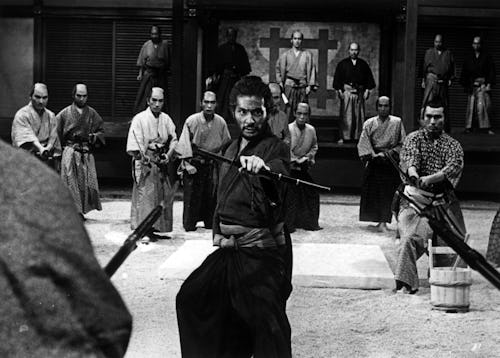
Masaki Kobayashi's 1962 Japanese masterpiece, Harakiri, is a samurai revenge thriller that doesn't reveal that about itself until it reaches its final third. The film spends its first hour detailing the tragedy that led its protagonist, Tsugumo Hanshirō (Tatsuya Nakadai), to seek out the heads of the clan responsible for his son's agonizing death.
A wonder of formal invention and centered around a heartbreaking performance by Nakadai, Harakiri is the rare revenge film that isn't about killing one person or even several. Instead, it's a razor-sharp drama about one man lashing out at the cultural institutions that, at their simplest, allow acts of needless and heartless violence to not only be carried out but socially accepted. It's a brilliant deconstruction of so many of the samurai films that came before it and one of the most finely crafted revenge movies ever made. It initially requires a bit more patience from its viewers than some of the other titles on this list, but it eventually rewards that patience tenfold.
Lady Snowblood (1973)
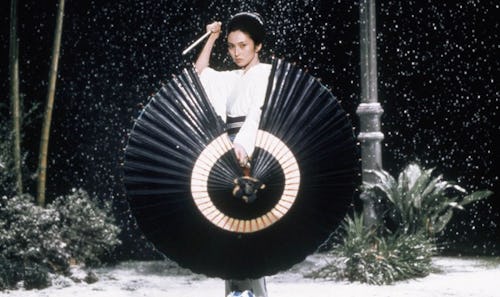
Famously cited as one of the biggest inspirations for Quentin Tarantino's Kill Bill Vol. 1 & 2, director Toshiya Fujita's Lady Snowblood is one of the most cathartic and gloriously violent revenge movies you'll ever see. Featuring a fiery performance from Meiko Kaji as its eponymous lead, the film follows her as she trains and then embarks on a quest to murder the men who raped her mother.
Narratively, the film isn't nearly as subversive or unpredictable as some of the other movies on this list, but there's immense fun to be found in the straightforwardness of both its story and presentation. Lady Snowblood is ultimately a B-movie executed at the highest possible level. It turns one woman's revenge plot into a balletic, technicolor adventure that delivers just as many moments of visual and emotional beauty as it does bloodshed. Thanks in part to Tarantino's well-publicized love for it, Lady Snowblood now ranks as one of the most popular revenge movies ever made. Fortunately, it more than lives up to its own reputation.
Gladiator (2000)
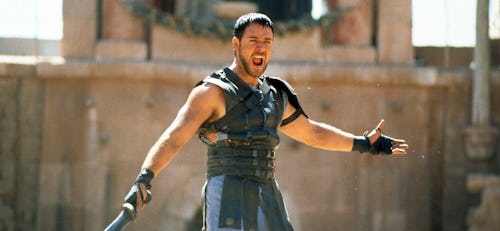
Ridley Scott's Gladiator is a lot of things. It's a period epic, a bone-rattling action film, and a stealthy slice of Roman-era political intrigue. However, above all else, it's a revenge thriller — and a great one at that. With Russell Crowe's Maximus, it has a protagonist every viewer can root for. He’s a soldier whose mentor, wife, and child are all wrongfully murdered, and watching him rise back up from nothing to face Joaquin Phoenix’s corrupt Commodus, the man responsible for the atrocities committed against him, is as purely entertaining as it gets. His relatable desire for vengeance fuels Gladiator’s dramatic momentum across all of its 155 minutes, and few lines of dialogue hit as hard as when Crowe tells a quivering Phoenix, "I will have my vengeance — in this life or the next." It’s an unabashedly great moment in a movie that, frankly, rules.
John Wick (2014)
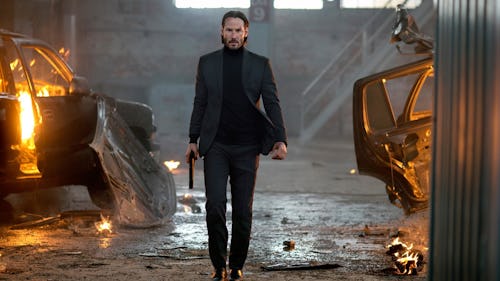
What happens when a bunch of mobsters accidentally wrong the world's greatest assassin by killing his dog? In John Wick, the film that kicked off one of modern cinema's greatest action franchises, countless bullets are fired and just as many bodies fall.
The Keanu Reeves-led 2014 thriller may seem small now in comparison to the sequels that followed it, but there's an elegance to John Wick that makes it one of the most easily watchable action movies of the past 20 years. The film cleverly avoids its genre’s dead wife cliché by killing off its hero's dog instead, and it mines more memorable action sequences out of its simple revenge premise than most other contemporary blockbusters. On top of that, the quiet intensity of Reeves' performance makes watching his character embrace all of his worst impulses again in the name of righteous revenge just seem all the more cathartic and tragic.
The Virgin Spring (1960)
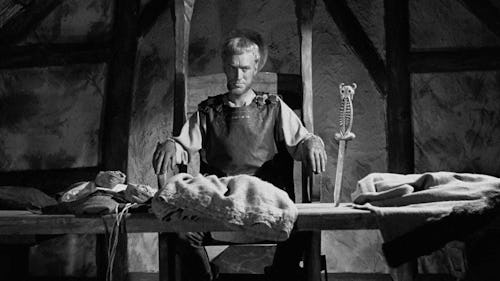
Oftentimes, it doesn't seem like the hero at the center of a revenge movie is just fighting one or two enemies, but also the entire corrupt, brutal world they reside in. No film takes that idea as far as The Virgin Spring. Set in medieval Sweden, Ingmar Bergman's 1960 drama follows a no-nonsense father who decides to respond to his young daughter's merciless rape and murder with a level of viciousness that matches the crimes committed. Images of humanity and nature clashing recur throughout the film, but none make as much of an impact as Max von Sydow's grieving Töre fighting to topple one lone tree all on his own. What he eventually realizes is that it's impossible to bend nature to your will. Sometimes, you just have to conform to its power. Before it reaches that conclusion, though, The Virgin Spring finds the time to unleash one of the most haunting cinematic representations of revenge you'll likely ever see.
Kill Bill Vol. 1 (2003)
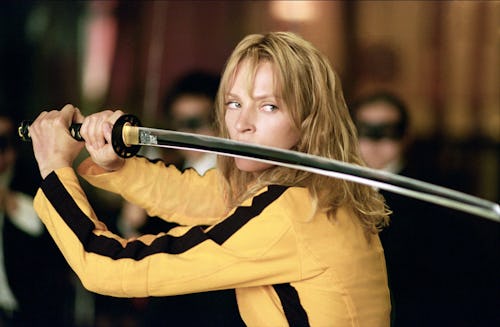
When it comes to making a list like this, some would probably argue that Kill Bill Vol. 1 & 2 should be counted as one complete film. However, while there's no doubt that together they form a sweeping revenge narrative that is as shocking and violent as you'd expect from a Quentin Tarantino-directed two-parter, it does feel worthwhile to single out 2003's Kill Bill Vol. 1.
The film features more action and in-your-face style than its successor, 2004's Kill Bill Vol. 2, as well as more blood, chopped-off limbs, and sword fights. The movie, in other words, courses with a more bloodthirsty, unrelenting sense of vengeance than its sequel, which purposefully slows everything down in order to retroactively add more emotional layers to its story. Kill Bill Vol. 1, conversely, isn't a deep film, but it is one of the most extravagant and thrilling revenge movies that has ever graced the silver screen. Rarely has a protagonist felt as driven to dole out throat-slitting justice as Uma Thurman's The Bride, and it's hard to think of an instance when a character has ever looked as cool while they're doing it.
Oldboy (2003)
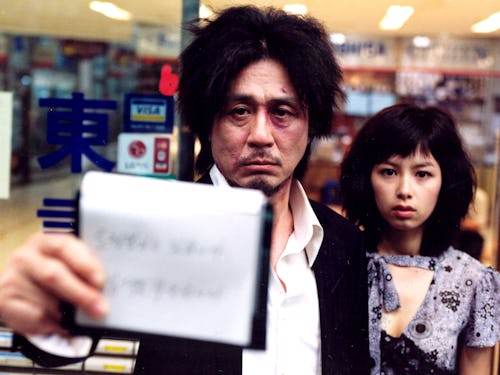
Released the same year as Kill Bill Vol. 1 and loudly championed by that film's director, Quentin Tarantino, Oldboy has built up quite the reputation for itself over the past 20 years. It's often considered one of the most surprising and lurid films ever made. While Oldboy very much is that, too, it's also so much more.
Throughout its runtime, the Park Chan-wook-directed masterpiece manages to gradually explain its many mysteries while also curling further and further into the darkness at the center of it. The film's one-shot hallway fight is the most well-remembered thing about it, and for good reason, given how brilliantly constructed and choreographed it is. However, it's Oldboy's twisty, increasingly grisly third act that truly punches you in the gut and makes you reconsider its seemingly straightforward revenge story from an entirely new angle. All it takes is experiencing it one time to realize that no other movie examines the cost or monstrousness of revenge as horrifyingly well as Oldboy, which is why it holds the No. 1 spot on this list.
FTTT
0 Comments